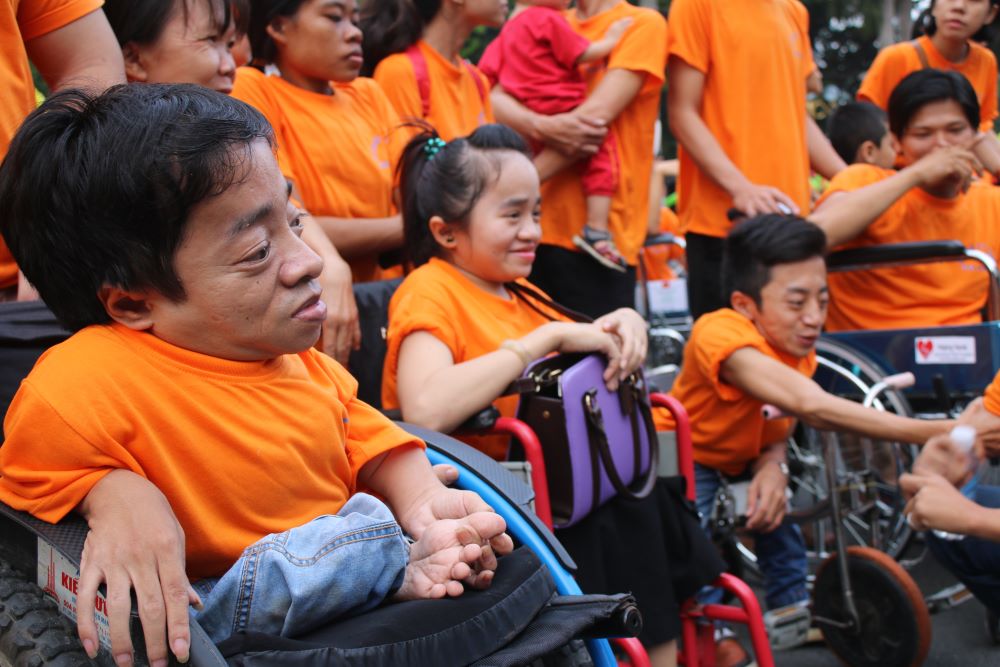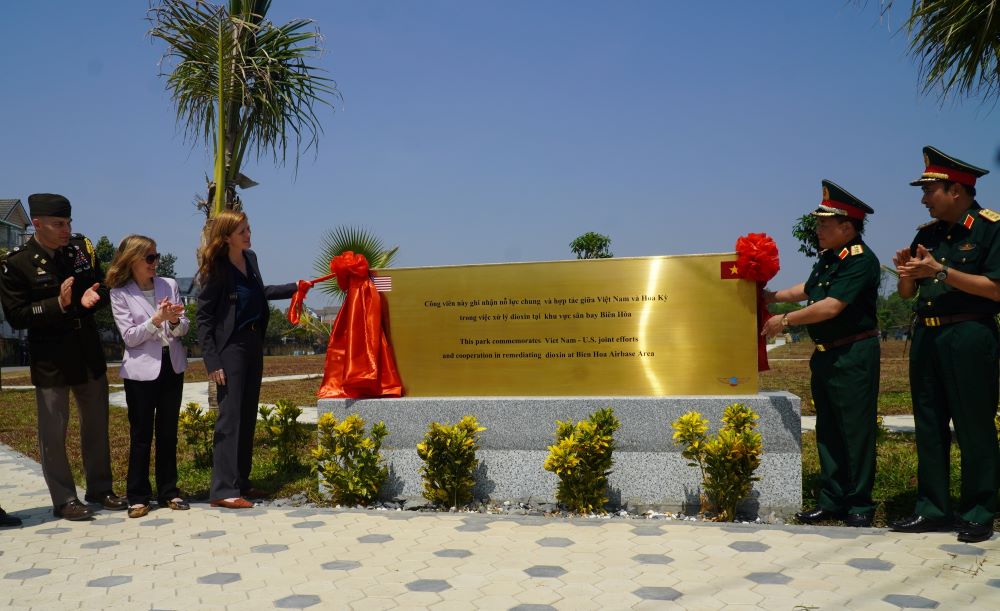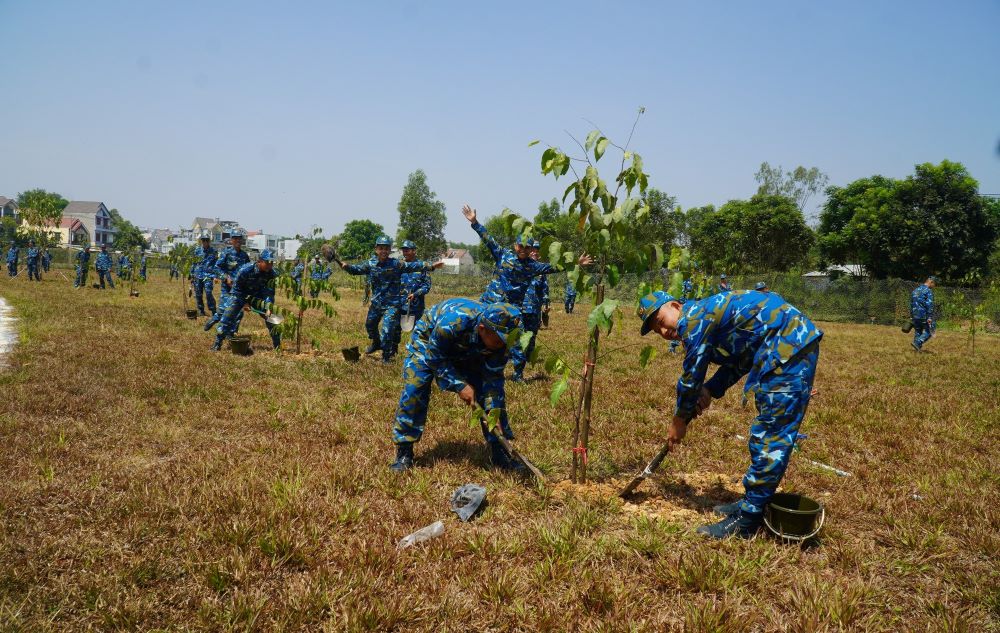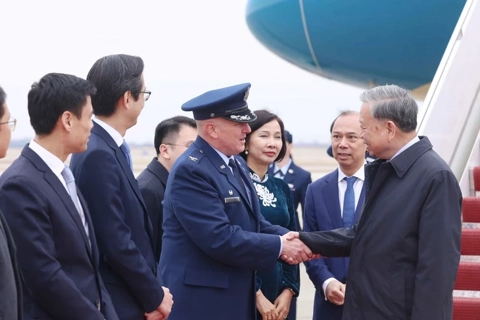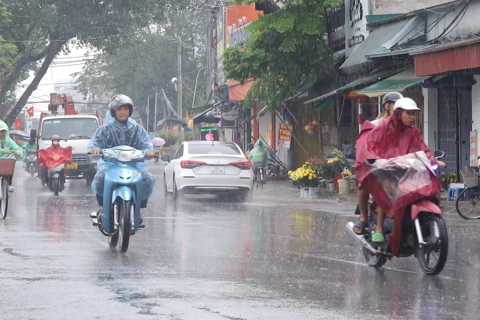August 10: Day for Vietnamese victims of Agent Orange
The lessons learned from US-Vietnam cooperation in this area could guide future US efforts to assist these two nations in mitigating the effects of dioxin.
On August 10, 1961, the US started aerial spraying of approximately 12 million gallons of Agent Orange/dioxin over South Vietnam.
| An event calls for support for Vietnam's Agent Orange victims. Photo: Thien Long/Cong An TP.HCM |
Since then, Vietnam has selected August 10th as the Day for Vietnamese Victims of Agent Orange/dioxin.
The ten-year spraying has left serious aftereffects throughout Vietnam, with about 4.8 million people exposed to the chemical, more than three million of whom suffer from health problems caused by exposure to the dioxin in Agent Orange.
Arguably the most enduring effect of the American War in Vietnam is the herbicide known as Agent Orange.
To ease the pain caused by the war legacies, the Vietnam Association for Victims of Agent Orange annually launches Action Month for victims of Agent Orange (AO) in August. During the month, various activities have been conducted to support AO victims and their families.
Vietnam’s populace has become increasingly concerned about the Agent Orange issues.
The Vietnamese Government has been working to clean up the environment and better care for those who were exposed to Agent Orange/dioxin.
| US and Vietnamese officials at the inauguration of a park in Bien Hoa Airbase after the dioxin cleanup project. Photo taken in March 2023 by Manh Hung/VGP |
Efforts of healing
Following US President George W. Bush’s visit to Vietnam in 2006, the two nations issued a joint statement in which Washington formally acknowledged the need to address the effects of Agent Orange, according to Phan Xuan Dung, research officer at ISEAS – Yusof Ishak Institute.
Six months later, the first yearly funding for Vietnam’s dioxin cleanup was approved by the US Congress. By 2021, it had grown to US$381.4 million, with 75% going to environmental cleanup and 25% to help people with disabilities, said the researcher, who is also a member of the US-Vietnam Next-Generation Leaders Initiative at the Pacific Forum.
The State Department tasked the US Agency for International Development (USAID) with administering the appropriated funds.
In 2011, separate funds were appropriated for health and disability programs, with an initial budget of $3 million which has since grown with funding from Washington. In 2019, USAID and Vietnam’s Ministry of National Defense signed a five-year memorandum earmarking $65 million to assist people with disabilities. The Consolidated Appropriations Act of 2021 provided $14.5 million toward this goal, channeling American aid to Vietnamese with severe disabilities in 10 heavily sprayed provinces.
According to Phan Xuan Dung, US leaders and private organizations have been critical to disability advocacy in Vietnam. He said a network of transnational actors, led in part by the Ford Foundation, has been vital to these developments over the years.
In 2002, the US-based Ford Foundation offered a grant to test the dioxin hotspot hypothesis on all 2,735 former American bases in Vietnam. The results showed that dioxin contamination was concentrated in three former bases: Phu Cat, Da Nang, and Bien Hoa. This revealed the extent of the environmental hazards and focused US-Vietnam discussions on remediation.
From 2000 to 2011, Ford approved nearly one hundred grants worth $17 million to Vietnamese ministries and research centers, UN agencies, and Vietnamese, Vietnamese-American, and other American NGOs for pilot programs to develop best practices for providing direct assistance to Agent Orange victims, locating dioxin hotspots, launching clean-up projects, and continuing to raise the issue in the United States. Ford’s initiatives and their partners’ work rekindled the interest of some US leaders, encouraging them to channel money to USAID for use in Vietnam.
When government-to-government cooperation was at an impasse, Ford acted as a facilitator and trust-builder, Phan Xuan Dung stated.
Still, support from US leaders has been crucial. The most prominent advocate is Sen. Patrick Leahy of Vermont, who pushed for US involvement in environmental remediation and aid to Agent Orange victims. His seniority in the Senate led him to spearhead these initiatives, and in 2015 he said that the US had “a moral obligation to do something about [the Agent Orange legacy].”
Tim Rieser, Leahy’s foreign policy advisor, and Michael W. Marine, US ambassador to Vietnam from 2004 to 2007, led the effort to arrange funding on the ground. Having witnessed first-hand the damages of Agent Orange in Vietnam and talked with Vietnamese representatives, they were determined to bring about joint US-Vietnam actions to mitigate the consequences of dioxin and help affected Vietnamese.
“Without such leadership, US assistance to Agent Orange victims would not have been possible” the researcher stressed.
Overcoming sensitivities will not be easy, but while the same was true two decades ago, Hanoi and Washington now have even greater incentives to remove barriers to closer bilateral relations.
“A victim-centered approach requiring US direct assistance to the victims and recognition of their plight will not only address the Agent Orange issue and promote justice for the victims but can also increase trust and cooperation between Vietnam and the US,” Phan Xuan Dung emphasized.
US Ambassador to Vietnam Marc Knapper reiterated at the start of his tenure in early 2022 that war legacies would be among the three main issues along with trade and regional security during his term in the Southeast Asian country.
| Planting trees in the dioxin-free park at Bien Hoa Airbase. Photo: Manh Hung/VGP |


